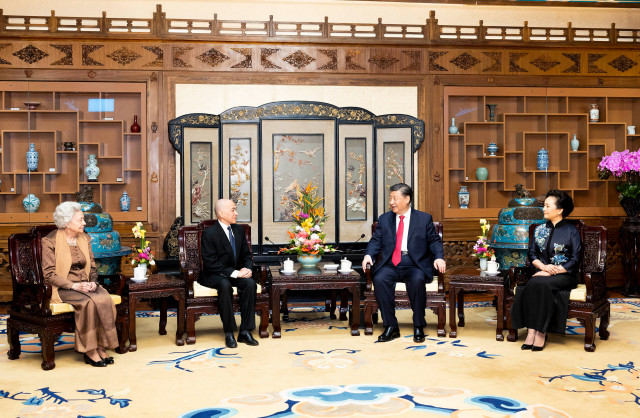Cost of Living and Language May Challenge Students in Shanghai

- By Thien Phearin
- March 17, 2024 5:00 PM
PHNOM PENH — Despite a few failures when applying for overseas scholarships, Tan Sen persevered until he obtained one. He has since been awarded a master’s degree in international relations and diplomacy at Shanghai University in China. Sen had previously received a bachelor’s degree in international relations and English at Norton University in Phnom Penh. Before being granted this scholarship, Tan Sen taught English for Speakers of Other Languages (ESOL) at Norton University. He recently talked of his time living and studying in China.
Thien Phearin: What prompted you to apply to study in China?
Tan Sen: Cambodia and China have had a strong relationship for a long time. Thus, I wanted to deepen my knowledge of Chinese diplomacy and global affairs. And I wanted to research China’s Belt and Road Initiative. So I thought it would be good to study for my master's degree in China.
Thien Phearin: Besides China, have you applied for scholarships at universities in other countries?
Tan Sen: I applied three times. The first time was for a Japanese government (MEXT) scholarship, the second for a Czech government scholarship, and the third time was for this one.
Thien Phearin: How do you apply and where do you find the information for scholarships?
Tan Sen: There are many steps. First, we need to go to the Ministry of Education, Youth and Sport’s Facebook page and apply for a scholarship. Once we have passed the exam, the ministry will guide us on how to proceed. As I was a China Scholarship Council (CSC) type A, I had to fill the CSC forms first. During the application process, I could select three universities…[I]f I qualified for one of the universities, they would then ask me to have an online interview with the international student affairs [section].
Thien Phearin: You have been in China for six months. What are the challenges one may face when studying in China?
Tan Sen: As Shanghai is the most modern city in China, everything…is expensive, and overseas students will indeed face financial difficulties. The second is the language barrier. In China, not many people speak English. If we go to China, we need to learn the Chinese language or at least know the basics of Chinese to survive there.
Thien Phearin: Would you share your perspective on China?
Tan Sen: Before I went to China, I had heard a lot about the negative aspects of China. Some people view China as a dangerous and strict country. However, when I stayed there for almost six months, I observed that China is very safe, even when we go out at night. Most notably, there are security cameras in operation along the streets. Up until now, I have not seen robberies or thieves in China [Shanghai]. Talking about social media, it is true that there are some restrictions on some social media platforms including Facebook, Tik Tok and YouTube. These three platforms are banned in China. If you want to use them, you have to use a VPN.
Thien Phearin: Do you find it hard to conduct research on the internet?
Tan Sen: I find it quite challenging when it comes to searching for documents on the internet. If we want to conduct research, we can use a VPN. Luckily, students here [Shanghai University] can access all those documents via the library website so that we can access many sources in the library database. However, I still use a VPN to conduct my own research and find some information on the internet.
Thien Phearin: Would you share your plans for the future?
Tan Sen: After graduating in China, I intend to become a professor teaching international relations and related topics since I used to work as a teacher and my field of study now is international relations.
Thien Phearin: Do you have any advice for Cambodian students who wish to take the plunge and apply for scholarships abroad?
Tan Sen: [S]tudents who wish to apply for scholarships abroad should keep checking the Ministry of Education page because there are numerous scholarships posted there. In addition to the ministry’s Facebook page, students can find information on scholarships on respective embassy websites or pages. Don’t underestimate your ability to apply. Just try your best, and especially improve your English proficiency as almost every overseas scholarship requires an IELTS test. If you believe in yourself, you will make it one day.















